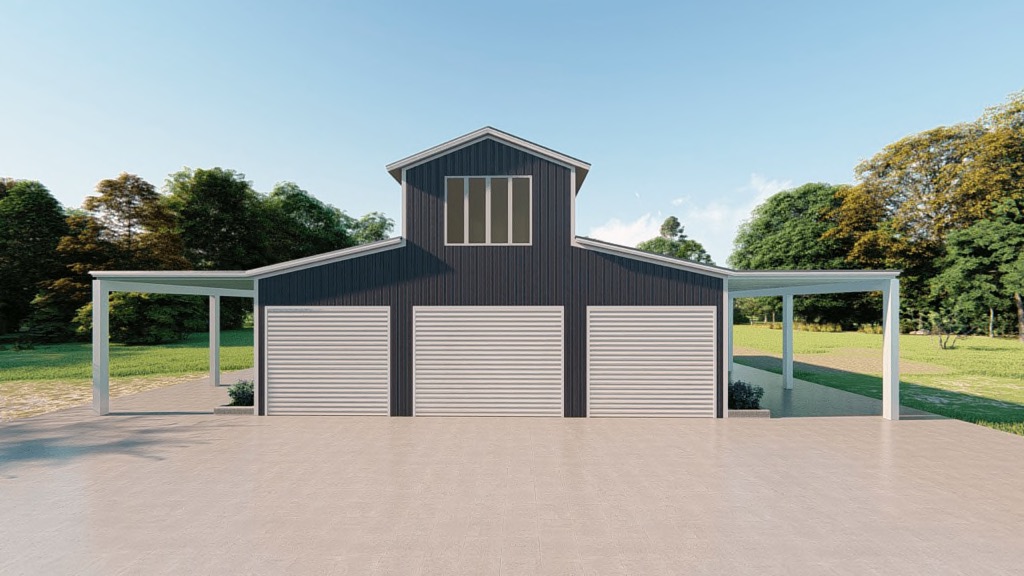You have a metal structure construction on your property. Great! Or are you looking forward to buying a metal barn? If you are considering purchasing any steel structure, remember to install an insulator as well. “But why?” you may ask. And it is a fair question.
Let’s see how an insulator is crucial in keeping your maintenance bills low and adding extra life to your metal structures.
What is condensation? When does condensation occur?
It is a process where water vapor in the air converts into tiny droplets. This results in the development of moisture. Generally speaking, metals are excellent heat conductors, making them more prone to condensation.
Condensation happens when there is a difference in the temperature outside vs. inside of a steel building. For example, when you pour chilled water into a glass at room temperature, tiny droplets appear on the glass’s outer layer. That’s condensation.
What insulator does & how is it helpful?
A little science stuff, so bear with us.
- First off, conduction – how heat moves through a material,
- Next, convection – how heat circulates through the material, viz., warm air rises up, cool air settles down,
- And lastly, radiation – how heat travels, i.e., heat travels in a straight line & heats up anything that lies in its pathway.
You can paint your roof with a reflective paint that absorbs less solar radiation, keeping your interior cooler. You would be surprised to know that almost 25% of heat loss occurs via the roof.
What role do insulators play in metal barns?
By controlling condensation, an insulator also stops moisture. This, in turn, prevents the rusting of metal panels & roofs due to the accumulation of water droplets.
In summer, an insulator will keep radiant heat out by reflecting it and acting as a barrier. In contrast, during winter, it will reflect indoor heat back & maintain the interior warmth.
How does it do that? – by fending off any air transfer.
To add to this, when your indoor temperature is under control, the HAVC system needs to work less to maintain it. This reduces your overall energy bills.
On top of it, installation of a bubble insulator or fiberglass is easy. Fiberglass is recyclable. They neither hurt nature nor contain any harmful chemicals as an ingredient. They also aid in lessening your carbon footprint by being energy saving.
Metal has a tendency to amplify the noise of rain & hail. With an insulator on your roof, you can reduce the sound of hails or rain falling on top. Yes, you can insulate your roof, too.
It would also be helpful as your neighbors won’t complain about machine or tool noise coming from your steel barn.
Metal barn insulation can help decrease the spread of fire in your metal building. It will even reduce the risk of spreading fire from one area to another.
6. Prolong Metal Structure Life
A metal barn with an insulator will keep moisture away. This will prevent infestation of pests such as termites, molds & mildew. A pest free metal building will last you long. They will have relentless structural integrity.
7. Bonus: Insulation Tax Credit
Since you choose a metal building & have installed an insulator, you are rewarded with a tax credit for saving energy at home. You can claim 30% of the project cost or the $1,200 amount credited. That’s great, isn’t it? So, do not miss out on applying for it.
Types of Insulator
There are a variety of options available for you when it comes to insulators, but which one is the best? Let’s find out.
Based on material:
- Fiberglass
- Mineral wool
- Cellulose
- Natural fibers
- Polystyrene
- Perlite
- Radiant barrier
Based on type:
- Insulated metal panels
- Rigid foam board
- Blown in
- Blanket, Batt & Rolls
- Spray foam
How much it will cost you to install an insulator?
The price of an insulator depends on the following factors:
- How big your metal structure is?
- What type of insulator have you chosen?
For a general answer, the average cost of the insulator is $1 to $5.56 per square footage. Labor costs can range from $0.50 to $1.60 per square footage. The national average is around $3,020.
In case you don’t want the hassle of installing an insulator, you can choose insulated metal panels.
These are:
- light weight
- steel skin with a foam sandwich
- extremely easy to maintain
The R-Value Factor: The higher, the better.
R-value is a measure of heat loss prevention by controlling air flow in & out of your home. So, which insulator works best for metal buildings? – The answer is fiberglass. They come with a range of R-values. You can talk to your dealer about how much the insulator will work for your building.
In the final analysis:
Whichever metal structure design you choose, do not forget to add an insulator. They are essential to keep condensation & moisture in check in a metal building. It would be helpful if you go through the R-value of each insulator & check which is best for you.
Having the highest R-value is not always essential for optimal performance. Have a look at this map given by ICC to determine your climate zone & choose your metal barn insulation accordingly. Remember to seal all the nooks & corners of your metal structure. That’s where most of the leaks take place.
Whatever you use your metal barn for, make sure they are adequately insulated to remain long–lasting.
